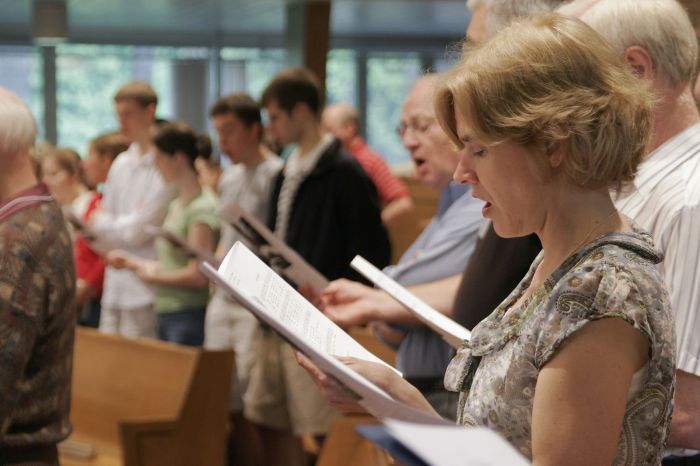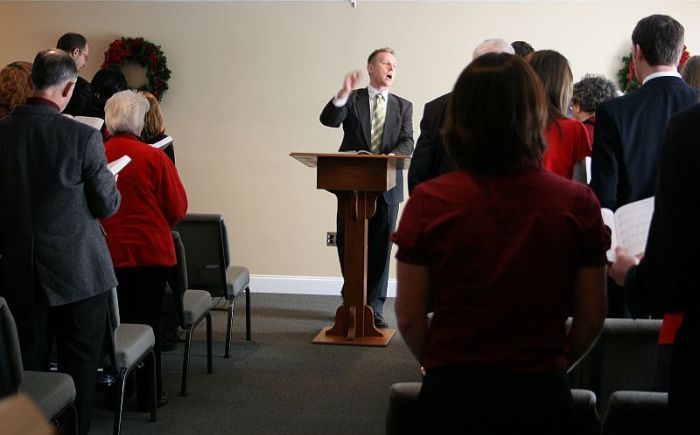Colonists in new england participated in congregational hymn singing. – Colonists in New England actively engaged in congregational hymn singing, a practice that played a profound role in their religious, social, and cultural lives. Rooted in the Protestant Reformation, this participatory form of worship became an integral part of the fabric of New England society.
Congregational hymn singing in New England was characterized by its communal nature, with all members of the congregation actively participating in the singing. This practice fostered a sense of unity and belonging, reinforcing the importance of community in colonial life.
History and Origins of Congregational Hymn Singing in New England
Congregational hymn singing emerged in New England as a result of the Puritan emphasis on congregational worship and the belief in the importance of music in religious expression. The first settlers brought with them a rich tradition of psalmody, which they adapted to their new environment.
Early hymns were often adaptations of Psalms, with new lyrics added to familiar tunes. The Bay Psalm Book, published in 1640, was one of the first hymnals used by colonists.
Characteristics of Congregational Hymn Singing: Colonists In New England Participated In Congregational Hymn Singing.

Congregational hymn singing in New England was characterized by its communal nature and participatory style. All members of the congregation were expected to sing, and the hymns were often sung without instrumental accompaniment. The music was simple and accessible, with a focus on melody and rhythm rather than complex harmonies.
Hymns served as a way for the community to express its faith and devotion, and they played an important role in shaping the spiritual and social life of colonists.
Social and Cultural Impact of Hymn Singing

Congregational hymn singing fostered a sense of community and unity among colonists. It provided a shared experience that brought people together and reinforced their sense of belonging. Hymns also played a role in literacy and education. The Bay Psalm Book was one of the first books printed in the American colonies, and it was widely used for teaching children to read.
The singing of hymns also helped to preserve cultural heritage, as many of the hymns were passed down from generation to generation.
Hymn Singing as a Form of Religious Expression
Congregational hymn singing served as a means of expressing religious beliefs and emotions. Hymns allowed colonists to give voice to their faith and to connect with God on a personal level. They also provided a way for colonists to express their hopes, fears, and aspirations.
Many hymns reflected the theological and spiritual experiences of colonists, and they continue to be sung in churches today.
The Role of Hymn Singing in Shaping Colonial Identity
Congregational hymn singing contributed to the development of a distinct New England identity. The hymns that colonists sang helped to define their sense of community and their relationship with God. They also reinforced the values of piety, hard work, and self-reliance that were central to the Puritan worldview.
Hymn singing was an integral part of the social and cultural fabric of New England, and it played a significant role in shaping the region’s identity.
Evolution and Legacy of Congregational Hymn Singing

Congregational hymn singing has evolved over time, but it continues to be an important part of religious life in New England. The musical style of hymns has changed, and new hymns have been written to reflect the changing needs of the church.
However, the basic principles of congregational hymn singing remain the same. Hymns continue to be sung as a way to express faith, to build community, and to connect with God. The legacy of congregational hymn singing in New England is a rich and enduring one.
General Inquiries
Why did congregational hymn singing become so popular in New England?
Congregational hymn singing gained widespread popularity in New England due to its alignment with the Protestant Reformation’s emphasis on the active participation of the laity in worship.
How did hymn singing contribute to the development of a New England identity?
Congregational hymn singing fostered a sense of community and shared values among the colonists, contributing to the formation of a distinct New England identity that emphasized religious piety, social cohesion, and cultural distinctiveness.